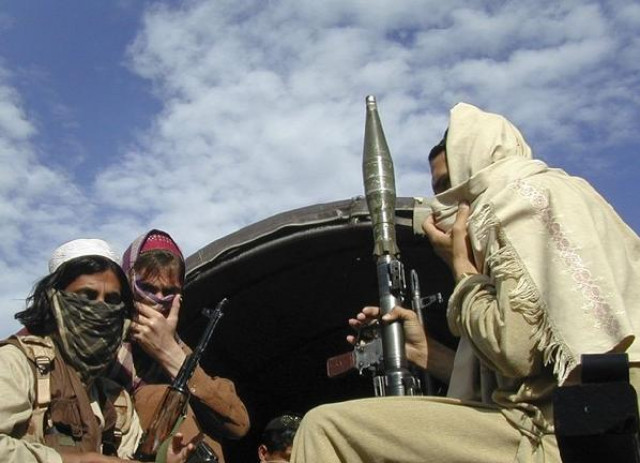Taking on the Taliban
It is reported that army is well deployed in N Waziristan, ready with firepower to attack. But are politicians ready?

After the Malala incident, the army says any attack into the stronghold of the terrorists in North Waziristan will depend on the government in power. It has been reported that the army is well deployed in North Waziristan and ready with effective intelligence and proper firepower to attack the agency. But are politicians ready? MQM chief Altaf Hussain addressed a big rally in Karachi on October 14 and asked the army to go to North Waziristan with “his party’s support”. He significantly challenged clerical parties for their inchoate stance and taxed the army with the observation that after consuming 80 per cent of the country’s resources, it was duty-bound to take on the terrorists. He went on to say that if the army did not act after the Malala incident, “the nation may be left with no option but to seek international help”. He also chided the judiciary for not reacting to the extremism and violence of the lawyers’ community, which “showered the killer of governor Salmaan Taseer, Mumtaz Qadri, with petals”. This was also the MQM’s critical reaction to Karachi’s Sunni Tehreek.
The nation realises that the coming general election will be heavily skewed in favour of parties showing caution while expressing disapproval of terrorism. The MQM is more vulnerable than the PPP and the ANP in this regard because of the growing strength of the Taliban in Karachi’s lawless megapolis. In the north, however, most politicians are more concerned with security than taking a clear moral stance. That includes the religious parties as well as Imran Khan’s Pakistan Tehreek-e-Insaf (PTI). Even when the JUI of Maulana Samiul Haq and the JUI of Maulana Fazlur Rehman appear at cross-purposes, they are both compelled to side with the TTP to save their rank and file from being targeted by suicide bombers.
Malala has caused bifurcation of the Pakistani mind: now, there is a possibility of fighting two enemies instead of just America, both beyond the capacity of the Pakistan Army to defeat. There is resistance, therefore, to moving to a binary of national challenge from the comfort of the consensus of hating America with the not-so-hidden process of appeasement of the TTP-al Qaeda. The spontaneous anti-TTP demonstration of opinion has benefited the army chief most of all after his ‘unusual’ August 14 declaration that the war against extremism and terrorism was Pakistan’s war. That, however, does not mean that he will now attack North Waziristan.
The other factor that goes against the possibility of a turnaround in Pakistan’s diagnostics of terrorism is Pakistan’s foreign policy. The Pakistan Army, which runs the country’s foreign policy, is hardly ready to end the country’s isolation in the region and at the global level. The development of the anti-American agitprop is more thorough-going than most people imagine. At a primitive level, it has brought the identity of the victim close to the identity of the tormentor. The persuasion of this chemical process is too deep for a civilised man to fathom. It is almost certain that Pakistan will fail even more than in 2009 to confront the terrorists and end their hold on the country.
The ‘rebuking’ aspects of Altaf Hussain’s address are, therefore, understandable. He has started resonating with many ‘silent’ observers of what is going on in Pakistan. He is seeking to bring the madrassa network and the non-state actors under pressure on the basis of their duplicity on the Malala incident, but the chances of his success hinge on the extent to which the military is willing to take on the Taliban and switch off its support to the proponents of the Kashmir jihad who feed into the killing machine of TTP. Let’s hope this happens.
Published in The Express Tribune, October 16th, 2012.














COMMENTS
Comments are moderated and generally will be posted if they are on-topic and not abusive.
For more information, please see our Comments FAQ